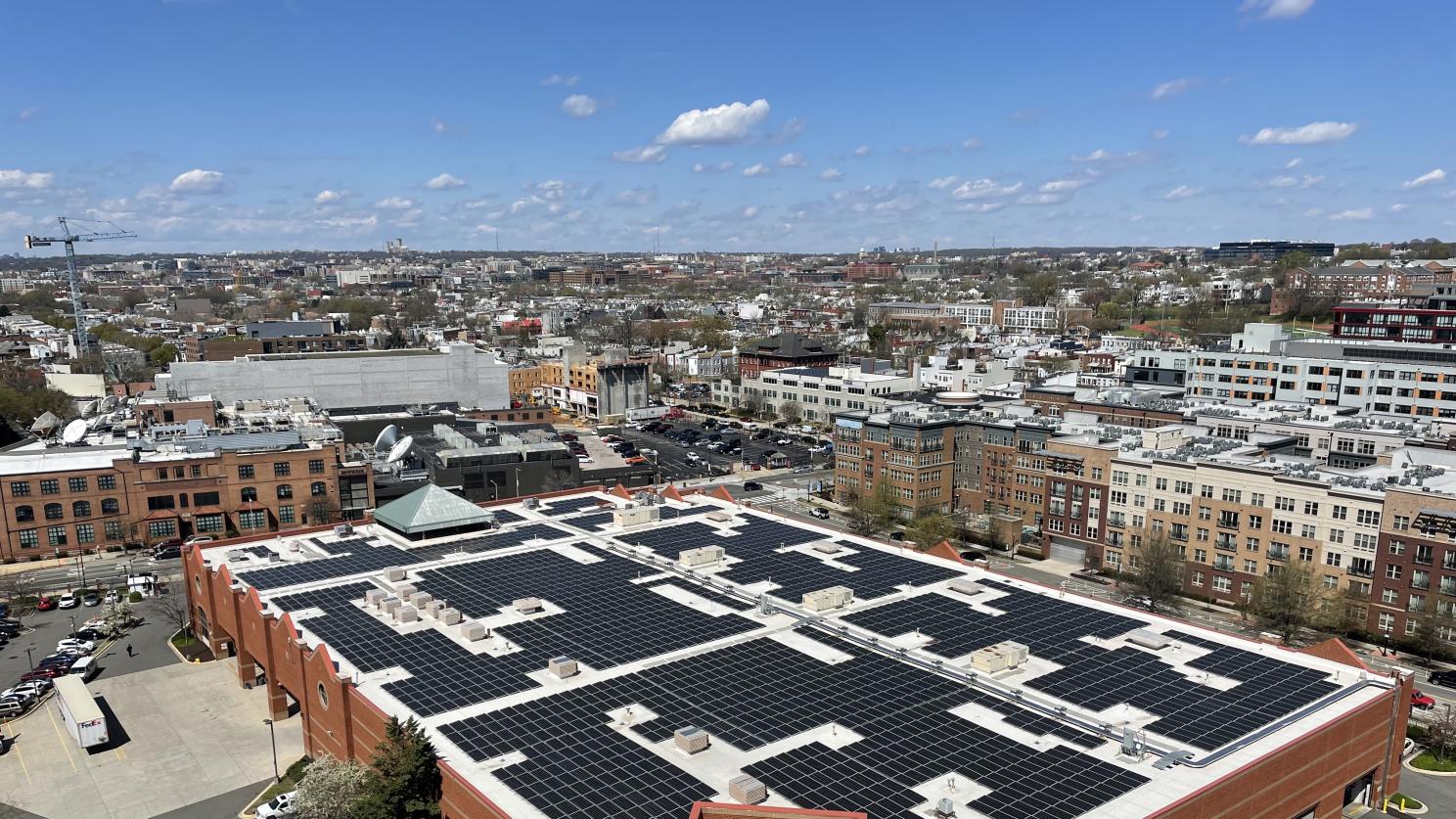Solar installation at FedEx facility in D.C. benefits local nonprofit
Bill credits from the solar project and direct funding from both FedEx and Sol Systems will help Washington D.C. nonprofit SOME offset their annual electricity costs.
Located in Northeast Washington, D.C., the FedEx Express Eckington Place facility’s 915 kW rooftop community solar installation is one of the largest in the nation’s capital, with the capacity to generate electricity for the equivalent of 150 homes. FedEx, along with D.C.-based solar developer Sol Systems and local nonprofit SOME (So Others Might Eat) have announced a special charitable arrangement that spreads the benefits of this community solar project even further into the District.
FedEx is allocating a portion of the electricity bill credits generated by the solar installation to local nonprofit SOME (So Others Might Eat), which provides services to individuals experiencing poverty and homelessness in the District.
“Giving back to an organization like SOME through this installation elevates the spirit of community solar,” said Gina Adams, Corporate Vice President for Government and Regulatory Affairs at FedEx and a lifelong Washingtonian. “As a part of the Ward 5 community, we saw an opportunity for FedEx to create an innovative giveback program that benefits the environment and advances the well-being of our D.C. neighbors at the same time. We hope what we’ve done with SOME may inspire others to think of creative sustainability solutions in their communities.”
“Having served Ward 5 for more than 50 years, SOME is thrilled to be partnering with FedEx, our esteemed neighbor, for this cutting-edge partnership that will result in significant cost savings for SOME. This budget-alleviating initiative will enable SOME to redirect the savings in support of our direct services to those experiencing homelessness and poverty in our nation’s capital,” said Ralph Boyd, SOME’s CEO and President. “We hope their inspired approach will herald a new wave of corporate-nonprofit engagement in the D.C. region.”
The donated bill credits, in conjunction with a supplemental cash donation from FedEx, are intended to offset the approximate annual electricity costs at two SOME facilities located in Ward 5: Isaiah House, a day program for those impacted by homelessness as well as mental illness, and Weinberg House, an affordable housing building for 28 families.
“What FedEx is doing here exemplifies the very nature of community solar projects, which is exactly what Mayor Bowser and the Department of Energy and Environment encourage through programs like Solar for All,” said Tommy Wells, Director of the District of Columbia’s Department of Energy and Environment (DOEE), “and we hope that more businesses will follow suit: this is an excellent way to support the community in which you do business.”
The installation of the solar project at this FedEx Express facility was completed in late 2021 by Sol Systems. Additionally, Sol Systems plans to match FedEx’s first-year contribution and volunteer with SOME over the lifetime of the project.
“Sol has been a proud and committed member of the community since we were founded in 2008,” said Yuri Horwitz, Chief Executive Officer of Sol Systems. “We are excited to deliver solar energy and drive tangible economic benefits to our local community with FedEx and SOME. We hope this initiative motivates others to follow FedEx’s leadership here.”
Community solar projects generate energy from solar panels that then feed into the District’s electricity grid to offset electricity usage for a number of customers, rather than just onsite consumption. In exchange for installing the solar panels on its roof, the FedEx Express facility receives bill credits toward its own electricity bill and can apply a portion of those credits to another electricity user in the District.
In March 2021, FedEx announced a goal of achieving carbon neutral operations by 2040 and has committed an initial investment of $2 billion in support of this goal in the key areas of fleet electrification, sustainable energy, and carbon sequestration. Increased use of renewable energy sources in the electricity grid will help FedEx and other consumers of energy reduce what are known as “Scope 2” greenhouse gas emissions generated from purchased energy.

